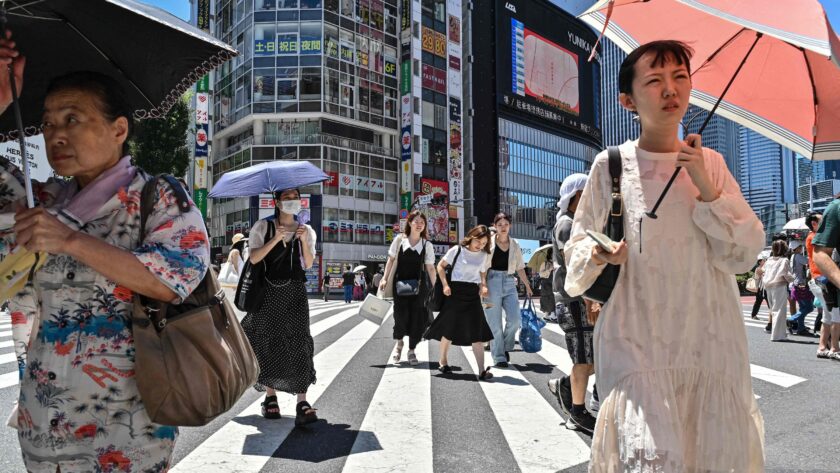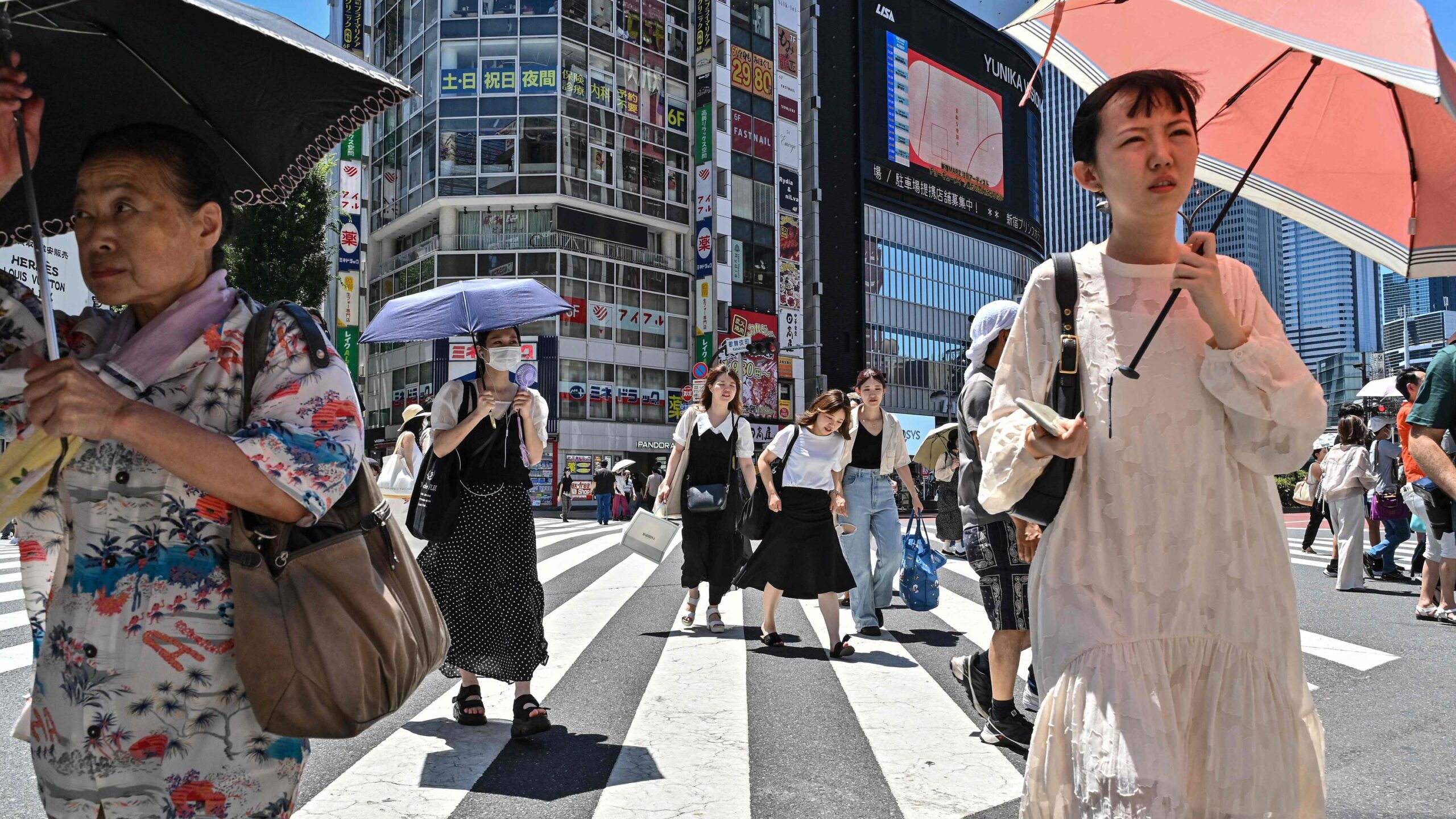Unexpected Recession Hits Japan; Germany Rises to Third-Largest Economy Globally
Japan Recession and Germany Rise
Japan unexpectedly slipped into recession at the close of last year, relinquishing its status as the world’s third-largest economy to Germany.
This development has raised uncertainties regarding the timing of the central bank’s exit from its decade-long ultra-loose monetary policy.
Analysts warn of a potential further contraction in the current quarter, citing weak demand in China, sluggish consumption, and production halts at a unit of Toyota Motor Corp (7203.T), which collectively pose significant challenges to economic recovery.
Yoshiki Shinke, senior executive economist at Dai-ichi Life Research Institute, remarked on the notable sluggishness in consumption and capital expenditure, which are fundamental components of domestic demand.
He expressed concern over the economy’s lack of momentum and absence of key growth drivers.

Government data released on Thursday revealed that Japan’s gross domestic product (GDP) contracted by an annualized 0.4% in the October-December period, following a 3.3% decline in the previous quarter. This unexpected downturn defied market expectations for a 1.4% increase, meeting the technical definition of a recession with two consecutive quarters of contraction.
While some analysts anticipate the Bank of Japan to phase out its extensive monetary stimulus this year, the weak data may cast doubt on the bank’s forecast that rising wages will support consumption and maintain inflation around its 2% target.
Stephan Angrick, senior economist at Moody’s Analytics, emphasized the significance of the consecutive declines in GDP and domestic demand. He suggested that these factors may complicate the central bank’s ability to justify a rate hike.
Economy minister Yoshitaka Shindo highlighted the importance of achieving robust wage growth to bolster consumption, which he described as lacking momentum due to rising prices. He emphasized the Bank of Japan’s comprehensive assessment of various economic indicators and risks in guiding monetary policy.
Following the data release, the yen remained stable at 150.22 per dollar, hovering near a three-month low reached earlier in the week.
The Nikkei (.N225) index rose by 0.8%, partially reversing losses from the previous session, possibly reflecting expectations that the Bank of Japan may prolong its massive easing program beyond initial projections.
On a quarterly basis, GDP declined by 0.1%, falling short of median forecasts of a 0.3% gain and compared to a 0.8% contraction in the previous quarter.
Private consumption
Private consumption, comprising over half of economic activity, contracted by 0.2%, falling short of market expectations for a 0.1% increase. This decline was attributed to rising living expenses and mild weather, discouraging households from dining out and purchasing winter clothing.
Capital expenditure, another vital driver of private-sector growth, decreased by 0.1%, contrary to forecasts of a 0.3% rise, as supply constraints caused delays in construction projects.
On the bright side, external demand, represented by exports minus imports, contributed 0.2 percentage points to GDP, with exports increasing by 2.6% from the previous quarter.
The Bank of Japan (BOJ) has been preparing to phase out negative interest rates by April and revamp other aspects of its ultra-loose monetary policy. However, sources suggest that the central bank may proceed cautiously with subsequent policy tightening due to lingering risks.
Although BOJ officials have not disclosed a precise timeline for ending negative interest rates, many market participants anticipate such action to occur either in March or April. A January Reuters poll indicated April as the preferred choice among economists for abandoning the negative rate policy.
Some analysts believe that Japan’s tight labor market and strong corporate investment plans keep alive the possibility of an early departure from ultra-loose policy measures.
Marcel Thieliant, Head of Asia-Pacific at Capital Economics, noted contrasting signals from business surveys and the labor market, suggesting sluggish growth despite consecutive GDP contractions in Q4. He emphasized that the household savings rate has turned negative, anticipating the BOJ to maintain an optimistic outlook on private consumption at its upcoming March meeting. Thieliant reiterated his projection that the bank will terminate its negative interest rate policy in April.
Source: Reuters
Also Read, Diminished Expectations of Fed Rate Cuts Keep Gold Below $2,000; Palladium Surges



